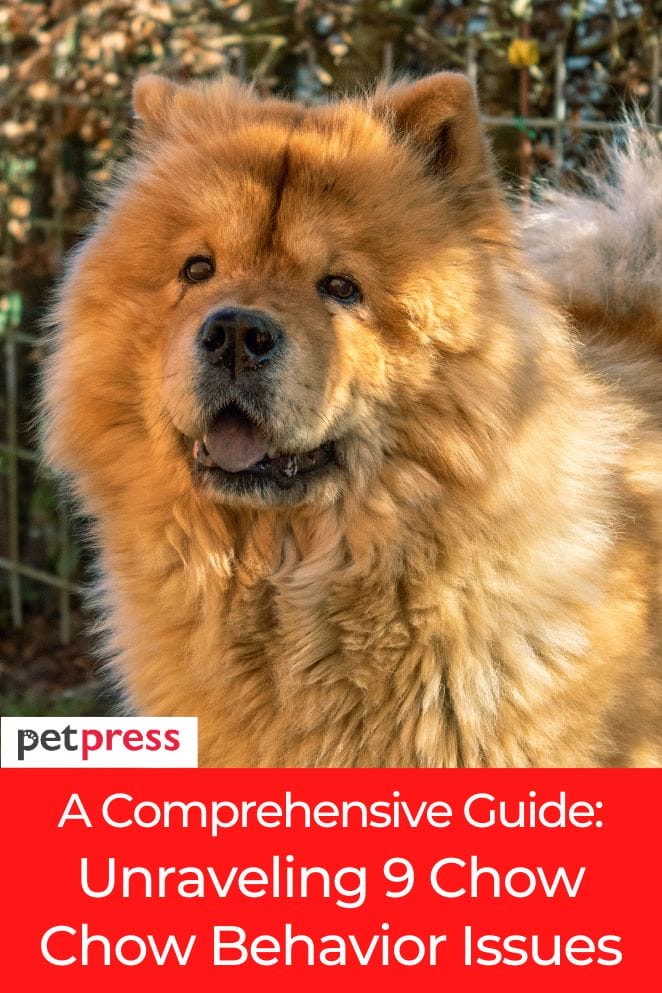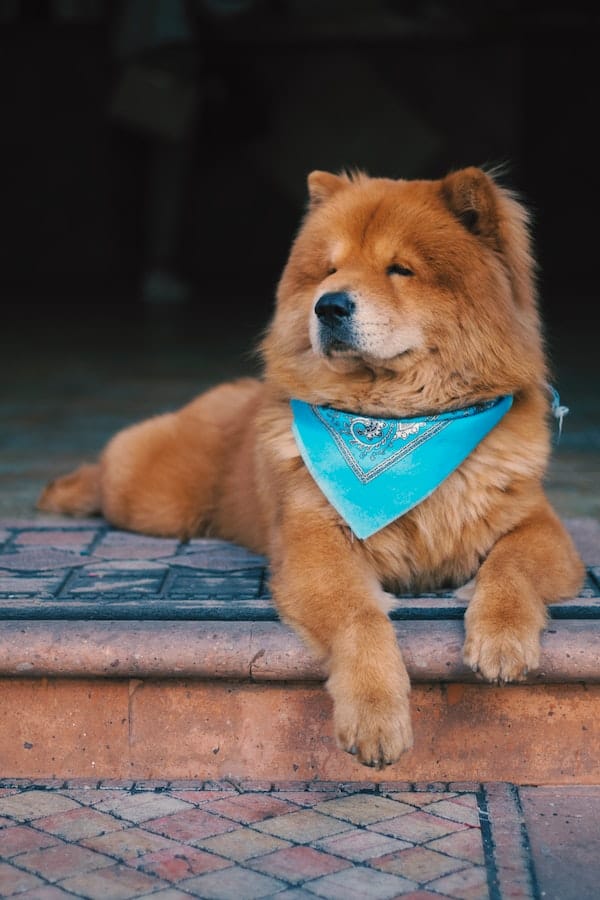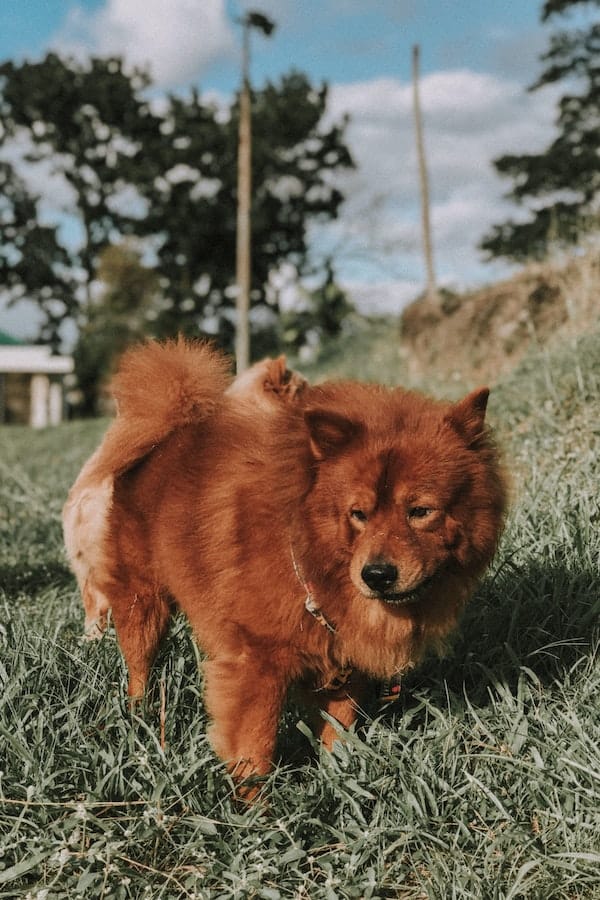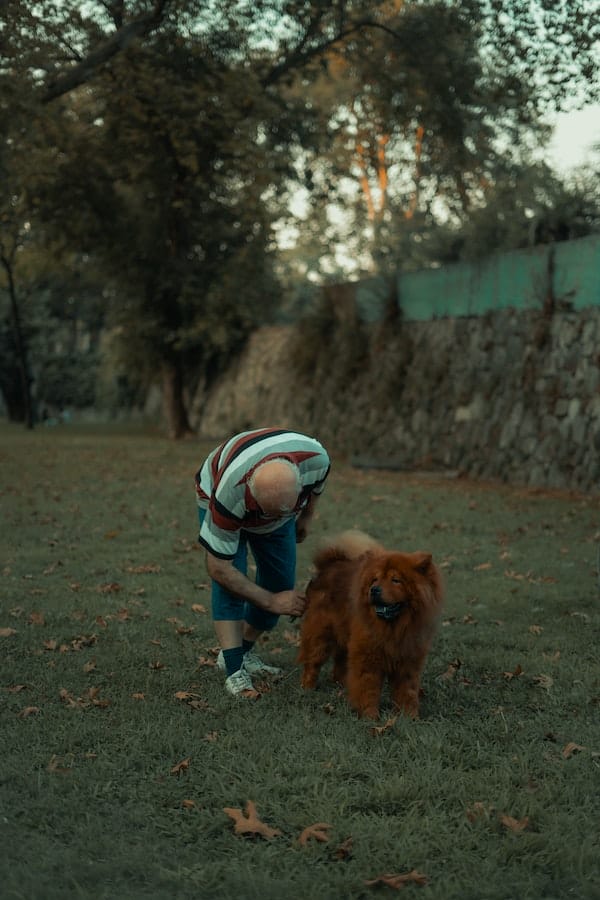
Welcome to our in-depth guide on understanding and addressing the behavior issues often encountered in Chow Chows.
These distinctive dogs, known for their lion-like manes and regal demeanor, can sometimes exhibit puzzling behaviors that leave owners seeking answers.
In this article, we will delve into the most common behavior issues associated with Chow Chows, explore the root causes behind these behaviors, and provide valuable tips to help you prevent and manage them effectively.
By the end, you’ll have the tools and knowledge to foster a harmonious relationship with your beloved Chow Chow.
Common Chow Chow Behavior Issues
Chow Chows, with their distinctive lion-like mane and deep-set eyes, possess a unique charm that’s hard to resist.
However, like any breed, they come with their own set of behavioral quirks and challenges.
Aggression
Chow Chows are inherently protective dogs, which can sometimes escalate into aggression, especially towards strangers or other animals.
This protective instinct can be beneficial in certain situations but may require careful socialization and training to ensure they respond appropriately to different people and pets.
Territorial behavior
Chow Chows tend to be quite territorial, which can present challenges when introducing them to new people or environments.
Proper socialization from a young age can help them become more comfortable in various situations and reduce territorial tendencies.
Stubbornness
Chow Chows are renowned for their independent nature, which may come across as stubbornness during training sessions.
They have strong personalities and may require patient, consistent, and positive reinforcement-based training methods to overcome their independent streak.
Excessive grooming
Some Chow Chows engage in excessive grooming, which can lead to skin issues and even bald spots.
It’s important to monitor this behavior and provide regular grooming to maintain their coat health.
If excessive grooming persists, consulting a veterinarian may be necessary to rule out any underlying issues.

Destructive chewing
Chow Chows may resort to destructive chewing when they are bored or anxious, which can result in damage to furniture and possessions.
Preventing boredom through mental and physical stimulation, along with providing appropriate chew toys, can help redirect this behavior in a positive way.
Barking
Chow Chows have quite a vocal presence.
They’re known for being vocal and may bark at just about anything and everything, whether it’s people passing by the window or squirrels frolicking in the yard.
Managing excessive barking often involves consistent training to respond to specific cues like “quiet.”
Digging
Digging is practically in Chow Chow’s DNA.
It’s a natural instinct, but when left unchecked, it can lead to a garden resembling a construction site.
Providing them with a designated digging area in your yard and encouraging them to dig there can help channel this instinct in a more constructive direction.
Housetraining
Housetraining a Chow Chow can be quite the challenge.
These dogs have relatively small bladders, and their intelligence sometimes leads them to figure out how to have things their way.
Consistency and patience are key in housetraining, along with regular trips outside after meals and naps.
Many Chow Chow owners also find success with crate training.
Separation anxiety
Just like humans, Chow Chows can experience separation anxiety.
This condition manifests when they become anxious when separated from their beloved owners.
To alleviate separation anxiety, gradual desensitization to being alone and providing them with engaging toys or puzzles can help soothe their worries.
Causes of Chow Chow’s Behavior Issues

Understanding the underlying causes of these behavior issues is key to addressing and preventing them.
Some contributing factors include:
Lack of socialization
Insufficient exposure to diverse people, animals, and environments during their formative stages can lead to fear or aggression in Chow Chows.
Early and positive socialization experiences help them build confidence and reduce anxiety in unfamiliar situations.
Inadequate training
Chow Chows have their own unique quirks, and they require patient, consistent, and positive reinforcement-based training to address stubbornness and potential aggression.
Training should be an ongoing process to reinforce good behavior and discourage unwanted actions effectively.
Genetics
It’s worth noting that certain behavior traits may have genetic roots.
Chow Chows, like any breed, have specific predispositions, and some of these traits may require specialized management and understanding to navigate effectively.
Boredom and anxiety
Chow Chows are intelligent dogs that thrive on mental stimulation.
Without proper engagement, they may resort to destructive behaviors as a way to cope with boredom or anxiety.
Providing them with interactive toys, puzzles, and regular mental challenges can help alleviate these issues.
Tips for Preventing Chow Chow Behavior Issues
To prevent and manage behavior issues in Chow Chows, consider the following tips:
Early socialization
Start socializing your Chow Chow as early as possible.
Exposing them to a variety of people, animals, and environments helps build their confidence and reduces territorial tendencies.
Puppy classes and controlled playdates can be valuable for socialization.
Consistent training
Consistency is key when training a Chow Chow.
Utilize positive reinforcement techniques such as treats, praise, or petting to reward desired behaviors.
Be patient and maintain a consistent set of commands to encourage good behavior and discourage undesirable actions.
Mental and physical stimulation
Chow Chows are intelligent dogs that thrive on mental and physical stimulation.
Engage them in interactive games, provide puzzle toys, and ensure they get regular exercise.
A tired Chow Chow is less likely to engage in destructive behaviors out of boredom.

Positive reinforcement methods
Positive reinforcement is a highly effective way to train any dog, including Chow Chows.
This means rewarding your dog for displaying good behavior. Use treats, verbal praise, and petting as rewards to reinforce desired actions.
Positive reinforcement creates a positive association with obeying commands.
Teach basic commands
Start with basic commands like sit, stay, and come.
These commands establish a foundation of understanding between you and your dog.
As your dog becomes proficient in these, you can gradually introduce more advanced commands like heel and down.
Patience and consistency
Remember that patience and consistency are your greatest allies in dog training.
Dogs learn at their own pace, so don’t be disheartened if you don’t witness immediate results.
Keep working diligently, and your dog will eventually grasp the commands.
Professional guidance
If you’re confronted with persistent or severe behavior problems that you’re struggling to address, consider seeking assistance from professional dog trainers or behaviorists.
These experts possess the knowledge and experience to assess your dog’s behavior, identify underlying issues, and formulate customized training plans.
Conclusion
Chow Chows are truly remarkable dogs, possessing distinctive traits that call for careful consideration in their care.
While it’s true that behavior challenges can emerge, gaining insights into these common issues, and their underlying reasons, and taking preemptive actions can pave the way for a fulfilling and enriching bond with your beloved Chow Chow.
FAQs
Chow Chows can be great family pets, but they should be socialized and trained appropriately to ensure they get along well with children.
Regular grooming is essential to maintain their beautiful coats. Brushing several times a week and professional grooming every 6-8 weeks is recommended.
Yes, many behavior issues in Chow Chows can be addressed and improved with proper training, socialization, and patience.
While they don’t need excessive exercise, daily walks and mental stimulation are essential to keep them happy and healthy.


GIPHY App Key not set. Please check settings